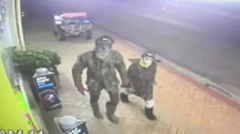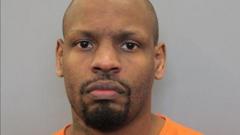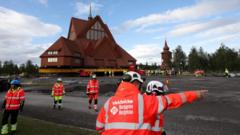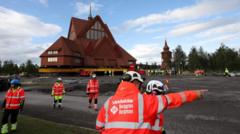The story of Davin Africa, a young boy inadvertently caught in a gang shootout, highlights the ongoing crisis of gun violence in Cape Town's Cape Flats. Families continue to endure profound loss, while local leaders like Pastor Craven Engel work tirelessly to broker peace amid a backdrop of generational trauma and socio-economic neglect.
Cape Town's Gang Warfare: A Community in Crisis

Cape Town's Gang Warfare: A Community in Crisis
Despite government efforts, Cape Flats continues to suffer from enduring gang violence, leaving families shattered and communities desperate for peace.
Caught in the crossfire of Cape Town's gang violence, families like Devon and Undean Koopman's face unspeakable grief after losing their children to ongoing conflicts rooted in historical apartheid injustices. Their son Davin, just four years old, was shot dead in February, a tragic victim amid the chaos of a gang shootout in Wesbank, while his older sister Kelly Amber lost her life in similar circumstances two years prior.
"This is the bullet hole here," says Devon, illustrating the tragic moment that forever altered their family. As the Cape Flats wrestle with a persistent gang problem, the Western Cape province reports the highest number of gang-related murders in South Africa. Though President Cyril Ramaphosa established a special anti-gang unit in 2018, challenges remain, with criminals often thriving in neglected communities.
Experts highlight that gangs often serve as unofficial support systems, offering financial assistance for necessities and exploiting the state's failures to provide for local needs. Pastor Craven Engel, working to mediate gang tensions in nearby Hanover Park, identifies the drug economy as a primary source of sustenance and conflict, revealing that high rates of addiction also plague the community.
Daily shootings and violence disrupt lives, particularly among youth drawn into this perilous environment. Amid this turmoil, Engel continues to seek dialogue with gang members, hoping to halt violence and transform mindsets. He engages with both victims and gang leaders, aware of the generational trauma informing their behavior.
With youth increasingly involved in gang activities, Engel recasts his efforts toward rehabilitation, offering programs funded by donations to help individuals like Fernando "Nando" Johnston break free from the cycle of violence. During an interview, Johnston expresses his desire for a path away from gang life, a sentiment echoed by his supportive mother.
"The options are either jail or death," Johnston reflects on gang life. Under Engel's guidance, he's beginning to understand a different future—one that includes family connections and a potential job instead of criminal pursuits. However, the road is fraught with challenges, including moments of raw violence that shake the fragile peace efforts.
Despite Engel’s tireless efforts, the impact of gang culture looms large over communities. The societal breakdown fostered by years of neglect complicates solutions, leading some to distrust law enforcement and seek self-determination in the face of systemic failings. The Cape Flats' struggle for hope persists, requiring resilience and relentless commitment from individuals within these communities. Engel encapsulates the sentiment profound in this battle: "Nobody is going to come from anywhere to help. As individuals, we need to be determined to build hope and resilience for our people."




















